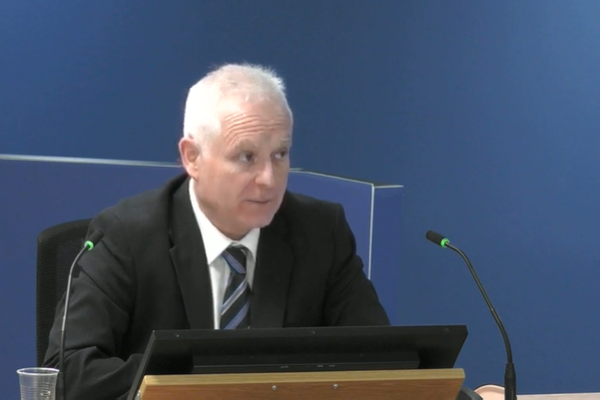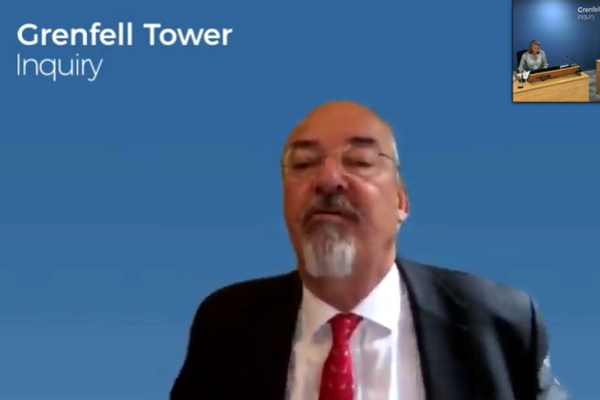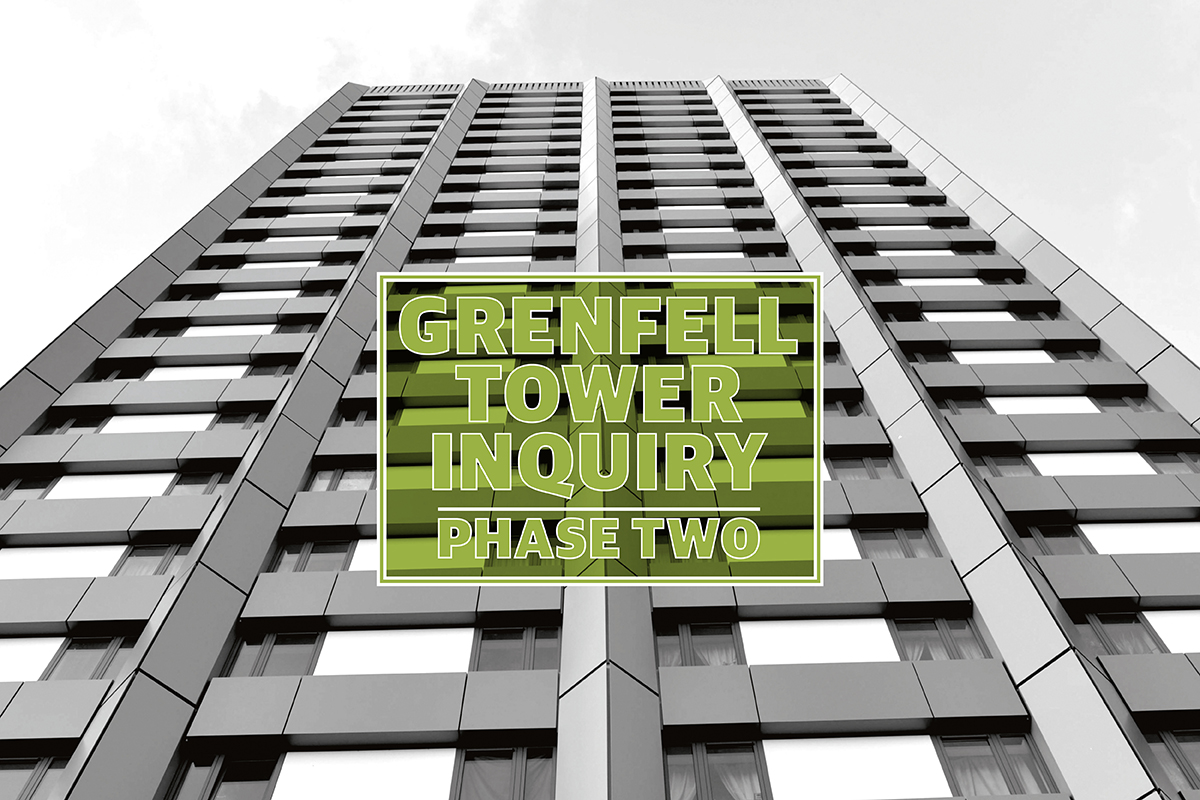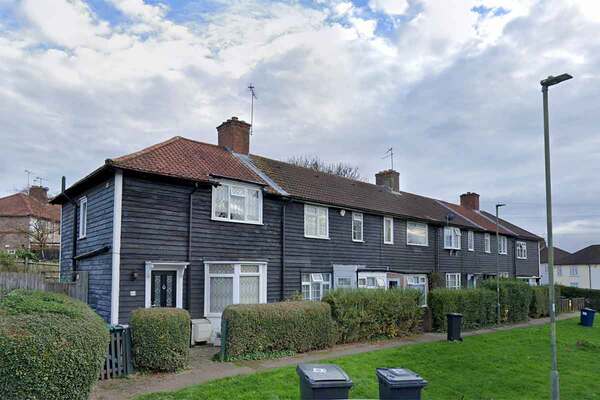You are viewing 1 of your 1 free articles
New training for LFB incident commanders not introduced before Grenfell despite coroner warning, inquiry hears
New training packages for London Fire Brigade (LFB) incident commanders covering the danger of rapid fire spread were still under development at the time of the Grenfell Tower fire, despite having been recommended four years earlier by the coroner investigating six deaths at another major high-rise fire.
The revelation emerged today as Peter Groves, former head of development and training at the LFB, was questioned about the training modules offered to firefighters in the years before the Grenfell Tower fire.
The inquiry also heard that planned training on the risk of rapid fire spread in modern, highly insulated buildings was not introduced because of problems with the LFB upgrading its Internet Explorer package.
The first phase of the inquiry – which examined the events of the night of the fire – concluded that training did not prepare incident commanders for the rapid spread of the blaze up the building on the night of the fire.
This was despite Frances Kirkham, the coroner who investigated the six deaths at Lakanal House in 2009, making seven recommendations about training to improve incident commanders’ ability to deal with large high-rise fires, including a need to “anticipate that a fire might behave in a manner inconsistent with the compartmentation principle”.
The Lakanal House fire had spread externally via combustible high-pressure laminate panels attached to the walls, with internal fires ripping through suspended ceilings and defective fire doors.
Crews attending the fire were surprised by the ability of the fire to spread through the building so fast, having expected it to be contained in the flat of origin.
In its response to the recommendations from the coroner, the LFB said it would “engage with its training contractor to ensure that the seven points identified in this recommendation are embedded within the current incident command training”.
The brigade had outsourced training to private provider Babcock in 2012. The inquiry saw the statement of a senior officer today that said this arrangement made it difficult to “fast-track” urgently needed changes and “often resulted in training, commissioning or training alterations becoming a lengthy, drawn-out process”.
However, Mr Groves said this was something that got better over time.
In his witness statement, Mr Groves listed several training courses that were adapted in order to incorporate the recommendations at Lakanal House, and told the inquiry today that these changes effectively delivered the coroner’s recommendations.
But minutes of a meeting in August 2017 – two months after the Grenfell Tower fire – showed that new courses for incident commanders at ‘level two’ were still being piloted, while courses for levels three and four were still being “scoped out”.
“Would you accept that despite the LFB’s intention to deliver the new incident command training by a deadline of April 2013, by August 2017 that had only been partially completed?” asked Andrew Kinnier QC, counsel to the inquiry.
“Yes,” replied Mr Groves. He said the priority had been training for staff at lower levels because this was what the “vast majority of the workforce” required and there were existing courses for the higher levels.
Shown his witness statement, which called incident commander training “the crown jewel” of the training package, he was asked whether it had been afforded the “priority it deserved”.
“There was the issue around subject matter expertise, signing off the content, but it was and remains a priority project,” he said.
“Would you accept that having waited four years in relation to level two, it’s difficult to see the word ‘priority’ having any meaning?” asked Mr Kinnier.
“Yes I can accept that,” he replied.
Asked if there was concern about this within LFB, he said: “There were a number of meetings with Babcock and it ultimately went up to the chief executive and the commissioner.”
“But not enough to get it done in four years?” asked Mr Kinnier.
“I think that’s fair comment,” replied Mr Groves.
The first incident commander at Grenfell Tower, Michael Dowden, has previously told the inquiry that he was shocked by the rapid spread of the fire and that his training had not prepared him for dealing with it or recognising it.
Mr Dowden had his last incident commander training before the fire in January 2017 – just six months before the fire.
The inquiry also saw documents showing that a meeting of senior LFB officers, including Mr Groves, was warned about the risk of fire spread in highly insulated buildings in March 2015.
This warning, issued by a senior LFB officer, explained that “rapid fire growth is becoming an increasingly common feature in highly insulated buildings”.
The officer recommended that an “operational news” article be circulated to fire stations highlighting the risks in such buildings and including a “training solution” on the topic.
This article was circulated in January 2016, but the ‘computure based training (CBT)’ package it referred to was not in fact live due to IT issues.
“Can you explain to us why operational news referred to a CBT package that was not in existence?” asked Mr Kinnier.
“No,” replied Mr Groves.
The inquiry was then shown documents which explained that the training package had been developed, but was pulled because the brigade had upgraded from ‘Internet Explorer 8’ to ‘Internet Explorer 11’.
The later version of the internet browser did not play the training package’s videos or allow the users to record their progress.
Asked whether progress could have been recorded on paper and videos provided on CD, Mr Groves said this would have been possible.
The inquiry also saw that a suggestion that training include case studies of overseas fires – including a cladding fire at Windsor Tower in Madrid, which spread over 29 floors – was rejected by one of Mr Groves’ colleagues. He wrote that using case studies relating to overseas fires where different forms of firefighting tactics are in place was of “questionable benefit”.
The inquiry continues with further evidence from Mr Groves tomorrow.
Update: at 2.50pm on 22.9.2021
An early version of this story said ’CBT’ stood for compulsory basic training when in fact it stood for computer-based training. This was corrected.
Sign up for our weekly Grenfell Inquiry newsletter
Each week we send out a newsletter rounding up the key news from the Grenfell Inquiry, along with the headlines from the week
Already have an account? Click here to manage your newsletters











